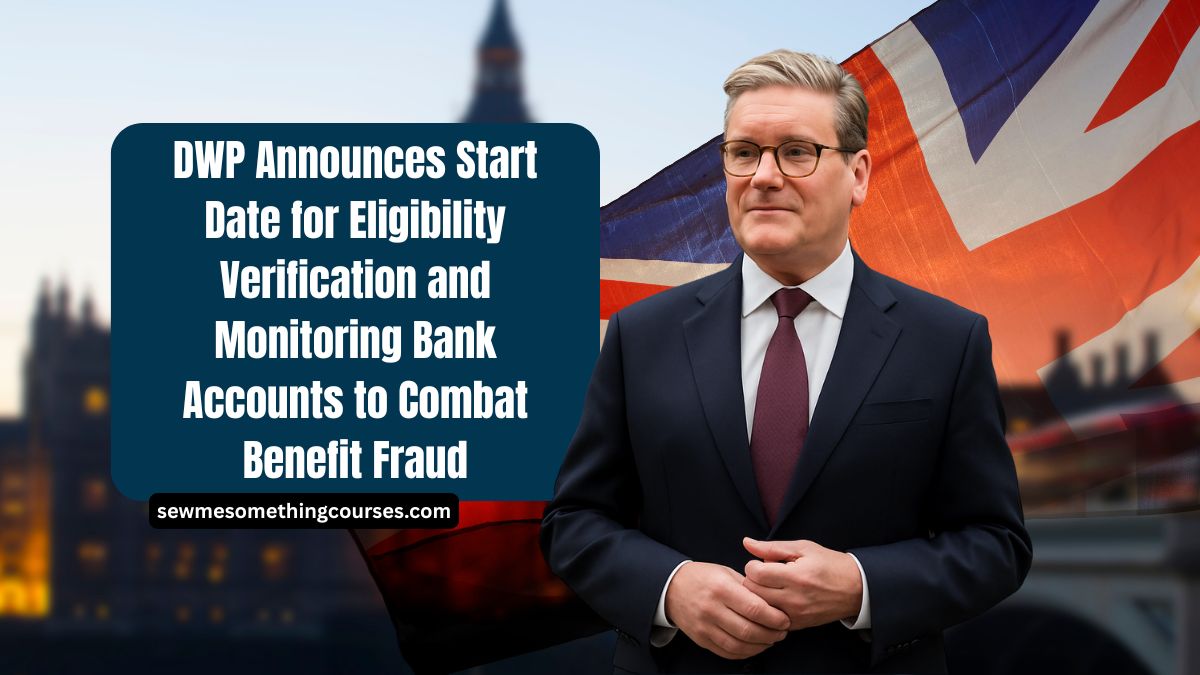Earlier this year, the UK Government unveiled its largest fraud crackdown in a generation, aiming to combat the rising losses in the welfare system.
According to the Department for Work and Pensions (DWP), the Public Authorities (Fraud, Error, and Recovery) Bill is expected to save taxpayers £1.5 billion over the next five years.
New Measures to Tackle Benefit Fraud
The government has introduced a range of new initiatives to reduce fraud, including:
- Driving bans of up to two years for those who consistently refuse to repay money owed due to fraudulent claims.
- Powers allowing the DWP to recover funds directly from fraudsters’ bank accounts.
- Eligibility Verification, enabling third-party organizations, such as banks, to flag potentially fraudulent claims.
Introduction of the Public Authorities Fraud Bill
The DWP published 11 new factsheets outlining how these new measures will be executed and monitored. The UK Government has confirmed that the new powers will be implemented starting in 2026.
These factsheets provide further clarity on how safeguards, reporting mechanisms, and oversight will ensure the effective and appropriate use of the powers granted to the DWP.
According to GOV.UK guidance, a “test and learn” approach will be adopted for the Eligibility Verification Measure. This approach will allow the government to ensure the new powers are used proportionately and effectively to tackle fraud.
DWP and Third-Party Information Gathering
The DWP will be collaborating with third-party organizations, such as airlines, to determine if people are receiving benefits while living abroad and potentially violating eligibility rules.
What Does Eligibility Verification Entail?
It’s important to note that the DWP will not have access to the bank accounts of people receiving means-tested benefits such as Universal Credit, Pension Credit, and Employment and Support Allowance. Instead, the DWP will work with banks to identify those who may have exceeded eligibility thresholds (e.g., the £16,000 income limit for Universal Credit).
Banks and financial institutions will only share limited data, specifically eligibility information, excluding transaction data. This means that the DWP will not be able to access how individuals on benefits spend their money. Additionally, financial institutions may face penalties for improperly sharing information such as transaction data.
Safeguards for the New Powers
The DWP will not assume that anyone flagged through the Eligibility Verification Measure is guilty of an offense. This is part of the government’s effort to ensure transparency and fairness throughout the process.
Overview of New DWP Powers
The Public Authorities (Fraud, Error, and Recovery) Bill is designed to meet the government’s manifesto pledge to protect taxpayers’ money. The bill will give the DWP new tools to detect and prevent fraud, including:
- New powers of search and seizure to target criminal gangs defrauding the system.
- Authority to recover debts from individuals who are no longer receiving benefits but have avoided repaying what they owe.
- Requirements for banks and building societies to flag potential breaches of eligibility rules, preventing the accumulation of debts.
- Strong safeguards, including reporting mechanisms, to ensure that powers are used appropriately.
The DWP will also establish training programs to ensure staff are prepared to handle these new powers effectively.
Role of the Public Sector Fraud Authority
The Public Sector Fraud Authority will utilize its expertise to:
- Reduce fraud against the public sector.
- Improve the detection and prevention of improper payments using new data-sharing powers.
- Provide non-criminal sanctions and civil penalties as alternatives to criminal prosecution.
- Enhance the ability of the government to recover public funds through debt recovery measures.
- Use search and seizure powers to lighten the load on police in more severe cases.
The Authority will also create specialized powers to handle fraud during emergencies, drawing from experiences in managing crises like the COVID-19 pandemic.
The new fraud crackdown measures, starting in 2026, will significantly enhance the UK government’s ability to combat welfare fraud and protect taxpayer money.
By implementing eligibility verification and other powerful tools, the DWP aims to reduce fraud across the public sector, saving taxpayers billions in the process.
FAQs
How will the DWP detect fraudulent benefit claims?
The DWP will work with third-party organizations, such as banks and airlines, to monitor claims and identify possible fraud. Additionally, the Eligibility Verification Measure will allow these organizations to flag discrepancies in claims.
Will the DWP have access to my bank account if I’m on benefits?
No, the DWP will not have access to your bank account directly. They will only receive limited information related to your eligibility for benefits, such as income levels, not your spending habits.
What penalties will financial institutions face for sharing too much information?
Financial institutions can face penalties if they improperly share information, such as transaction data, under the new eligibility verification rules.

